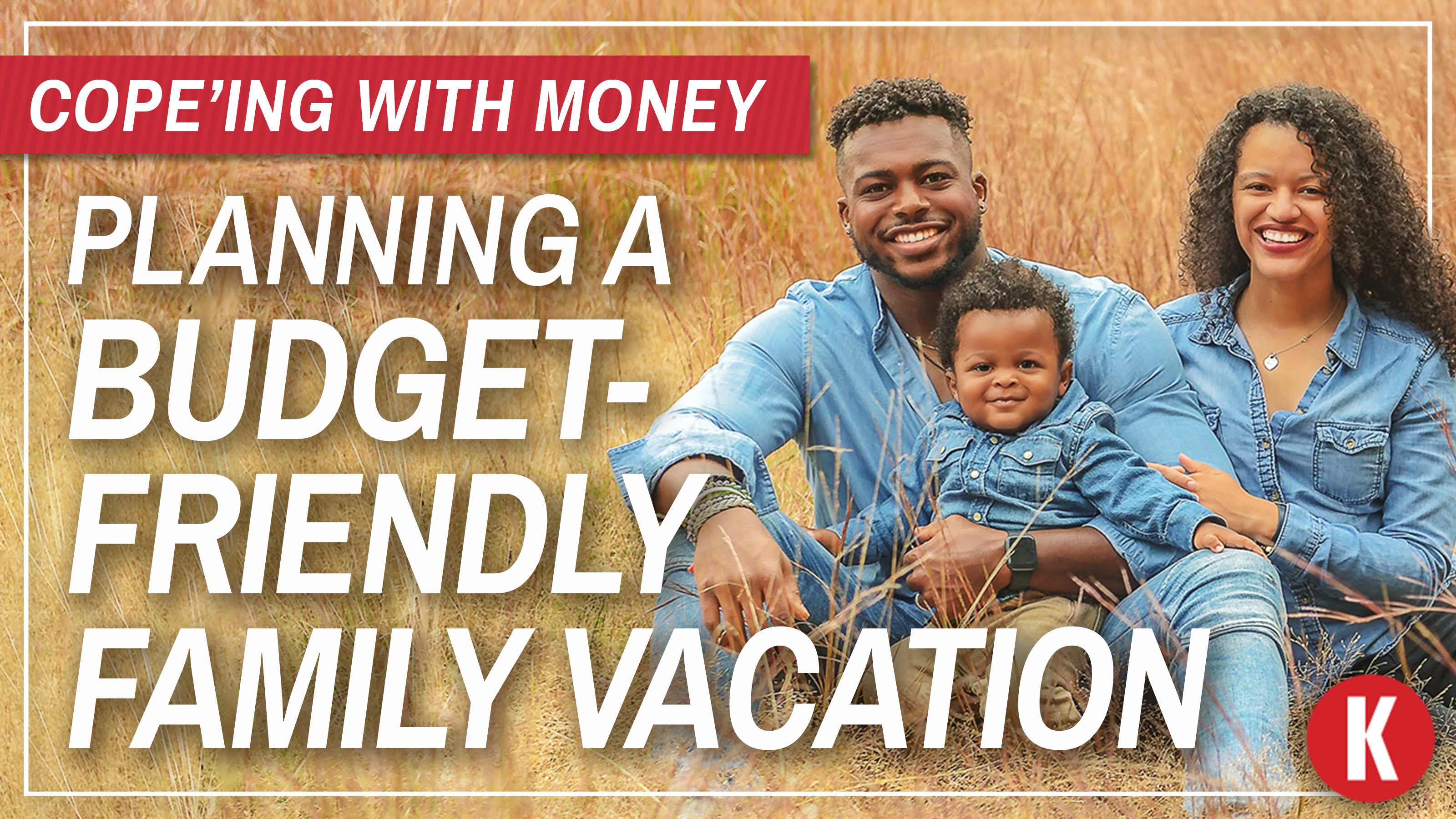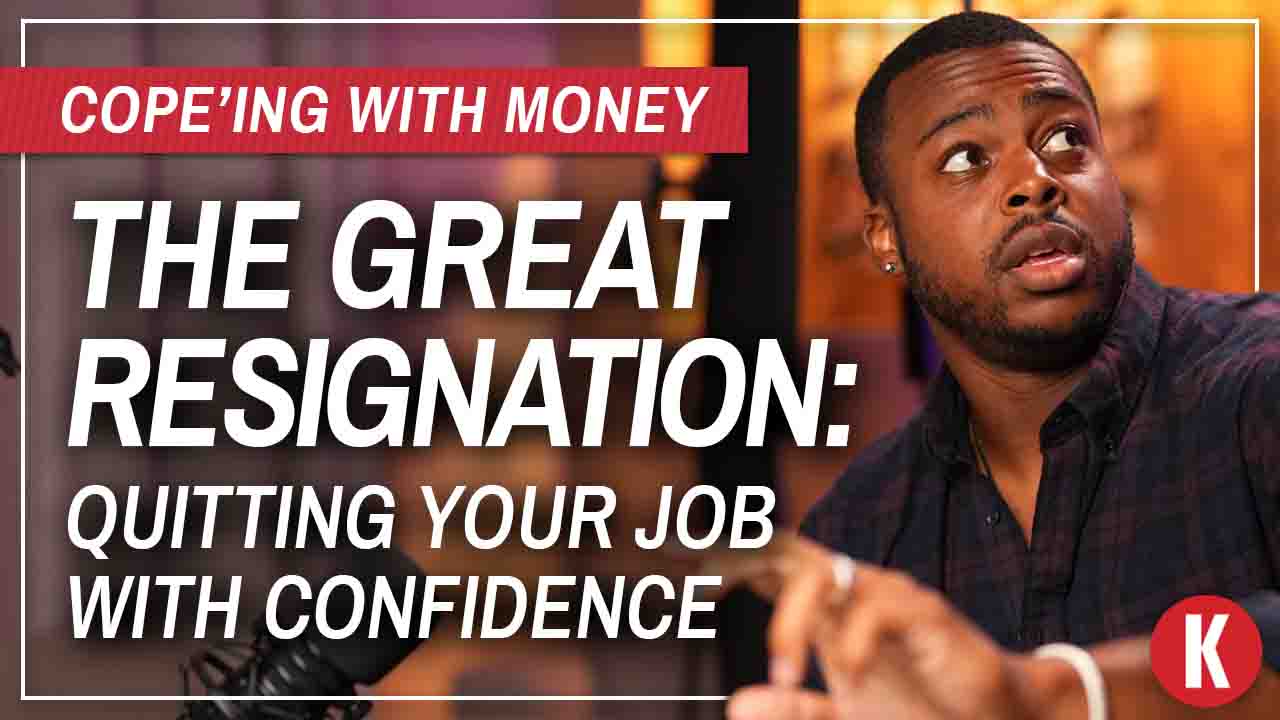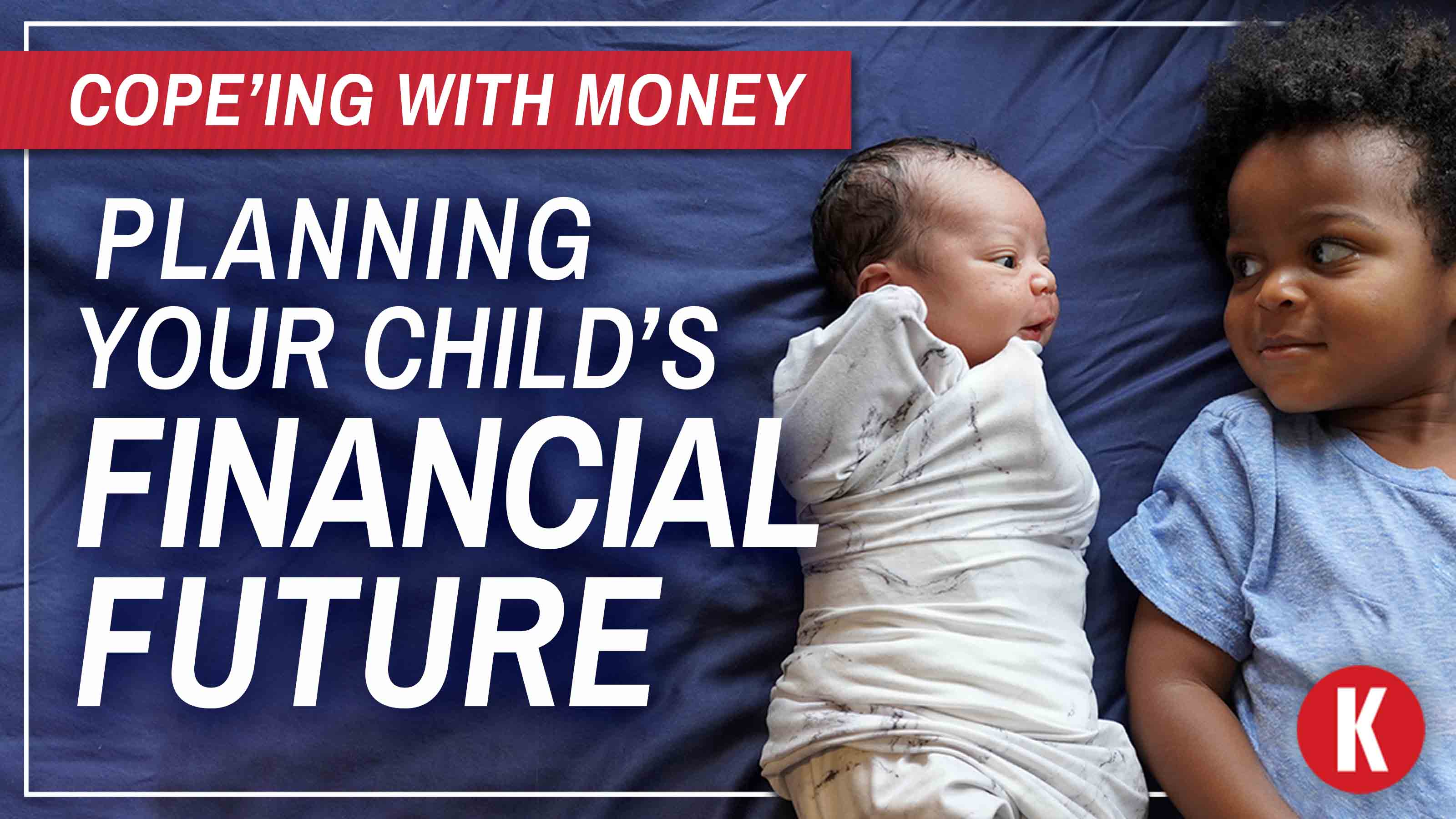How Big Should My Emergency Fund Be?
NFL linebacker and Kiplinger contributing editor Brandon Copeland discusses the importance of building an emergency fund.

Profit and prosper with the best of Kiplinger's advice on investing, taxes, retirement, personal finance and much more. Delivered daily. Enter your email in the box and click Sign Me Up.
You are now subscribed
Your newsletter sign-up was successful
Want to add more newsletters?

Delivered daily
Kiplinger Today
Profit and prosper with the best of Kiplinger's advice on investing, taxes, retirement, personal finance and much more delivered daily. Smart money moves start here.

Sent five days a week
Kiplinger A Step Ahead
Get practical help to make better financial decisions in your everyday life, from spending to savings on top deals.

Delivered daily
Kiplinger Closing Bell
Get today's biggest financial and investing headlines delivered to your inbox every day the U.S. stock market is open.

Sent twice a week
Kiplinger Adviser Intel
Financial pros across the country share best practices and fresh tactics to preserve and grow your wealth.

Delivered weekly
Kiplinger Tax Tips
Trim your federal and state tax bills with practical tax-planning and tax-cutting strategies.

Sent twice a week
Kiplinger Retirement Tips
Your twice-a-week guide to planning and enjoying a financially secure and richly rewarding retirement

Sent bimonthly.
Kiplinger Adviser Angle
Insights for advisers, wealth managers and other financial professionals.

Sent twice a week
Kiplinger Investing Weekly
Your twice-a-week roundup of promising stocks, funds, companies and industries you should consider, ones you should avoid, and why.

Sent weekly for six weeks
Kiplinger Invest for Retirement
Your step-by-step six-part series on how to invest for retirement, from devising a successful strategy to exactly which investments to choose.
Let's talk about how much you should save in your emergency fund and go over some ways that the savings positively impact your life.
What's up, everybody? It's your boy, Brandon Copeland, aka Professor Cope, and you are now tuned to another episode of Cope'ing With Money.
If you've been keeping up with Cope'ing With Money then I'm sure you've heard me say we've got to make our money work for us. But as important as that is, there's a crucial step we have to take before we can safely start investing: We need to build an emergency fund.
From just $107.88 $24.99 for Kiplinger Personal Finance
Become a smarter, better informed investor. Subscribe from just $107.88 $24.99, plus get up to 4 Special Issues

Sign up for Kiplinger’s Free Newsletters
Profit and prosper with the best of expert advice on investing, taxes, retirement, personal finance and more - straight to your e-mail.
Profit and prosper with the best of expert advice - straight to your e-mail.
We're all taught from a young age the importance of saving our money, but many of us are never told what we're actually saving for. You might think that a number in your bank account isn't nearly as exciting as investing in the stock market or taking that vacation that you've always wanted. And I'm going to be honest with you: It isn't. But it is one of the most important financial steps you can take, especially when you're trying to chase financial freedom.
So today I wanted to go over some ways that an emergency fund can benefit your life right now and talk a little bit about how much you should have saved in your emergency fund.
Prepare for Emergencies
An emergency fund can be used for a variety of situations, the first of which is right there in the name. Having some money stored away protects us in the event of an emergency or unexpected expenses.
For example, let's say you're skating at Skateland in Maryland. You're a seventh-grade kid, little husky, little rough around the edges, but it's the last song playing before you gotta get to your travel basketball league game. "Game Over" by Lil' Flip comes on. So you go out and skate one more time around the ring, but you fall this time, and you happen to break the growth plate in your ankle.
Our emergency fund not only helps cover the medical expenses, but also provides for us if we're unable to work while it heals. Now, seventh-grader, not working, but you can go ahead and imagine how this story applies to your life.
Whether it's car trouble or a burst pipe, or a sudden change in our living situation, we can never predict everything that life will throw at us. But by keeping an emergency fund, we can be prepared for it.
Stay Out of Debt
Building an emergency fund also helps us stay out of debt.
Let's take the same ankle injury, for example. If we don't have the money for our medical bills, then we'd likely have to take out a loan or put it on a credit card. And if we can't pay that money back, now we're stuck paying interest on it too.
One of the major hurdles to reaching financial freedom is debt, and a lot of times that debt can be caused by the natural obstacles that life throws at us.
Our emergency fund doesn't just cover the cost of the emergency itself but allows us to stay on even ground while we get it fixed.
Allow for Career Changes
An emergency fund also allows for career changes.
Earlier this year on Cope'ing with Money, we talked about the Great Resignation and went over some ways to quit your job responsibly. One such way was to have an emergency fund handy. Having savings stored up gives you more freedom when it comes to your career trajectory.
Sometimes, in order to protect our mental health, we need to leave an unfavorable situation. In these scenarios, it helps to rely a bit on our savings, especially if we can't line up another opportunity before leaving our current one. You might also find yourself applying for a position that pays less than your current one, but will help you get your foot in the door of your dream industry.
Once again, it helps to have some financial leeway in the form of emergency fund while we're pursuing our goals.
Make Use of Compound Interest
The best part about building an emergency fund is that we can reap the rewards and the benefits even if we never use it.
Depositing money in a savings account means we can start building interest and over time take full advantage of compound interest. Although most regular savings accounts collect small amounts of interest, it's still a way to build on money that we're storing away anyway. For long-term savings, you can also look into high-yield savings accounts to grow your potential earnings.
And if you're looking to start investing, this can be a great way to get a basic understanding of growing your money through passive income.
Pursue Financial Freedom
And finally, on the same note, building an emergency fund allows us to begin taking steps toward true financial freedom.
It's like I said: We've got to make our money work for us. And creating that financial safety net is one of the first steps toward investing with confidence.
While a portion of our income remains safe in that emergency fund, we can start working with whatever is left over, and like they say, only invest what you can afford to lose. It also lets us take on slightly riskier or less liquid investments should we choose to do so. And also keep in mind: If stocks and real estate investing aren't your thing, then keep growing those savings.
The better prepared you are for life's obstacles, the better you'll feel and the more confidence you'll be able to attack those obstacles with.
How Much Should I Save?
So by now you're probably thinking, "OK, Cope, you convinced me. But how much should actually be in my emergency fund?"
A healthy emergency fund typically contains three to six months' salary or living expenses, but as always, you have to assess your situation and save as much as you reasonably can.
Try to put away a consistent percentage of your income each month. This will help you stay on track and ultimately grow those savings.
Creating your emergency fund not only helps you level the playing field financially, but also puts you in great peace of mind when it comes to your financial situation. It feels good knowing that you're protected in case of an accident, and that with a cushion stored up, you can truly begin paying down additional debts and making your money your employee through investing.
To learn more about how you can build your emergency fund or other financial topics, visit Kiplinger.com. As always, I wish you luck on saving up your emergency fund. Stay safe, stay blessed. Till next time. Cope'ing with Money. I'll see you soon. Peace.
Links and Resources Mentioned
Profit and prosper with the best of Kiplinger's advice on investing, taxes, retirement, personal finance and much more. Delivered daily. Enter your email in the box and click Sign Me Up.

Brandon Copeland, an active, eight-year veteran NFL linebacker, has spent the past two years teaching a class he created, and nicknamed “Life 101,” at his alma mater, the University of Pennsylvania. Life 101 focuses on life’s constant money decisions so that students are better prepared for the financial realities that adulthood brings. Copeland also spends time off of the field consulting and investing in real estate. He is the co-founder of a nonprofit organization, Beyond the Basics Inc., and was the recipient of the 2020 NFLPA Alan Page Community Award, the NFLPA’s highest honor given for extraordinary dedication to service, social justice and equality. He is a member of CNBC’s Financial Wellness Council and the NFL Players Inc. Advisory Committee. Copeland has interned for UBS and Weiss Multi-Strategy Advisers.
-
 Quiz: Do You Know How to Avoid the "Medigap Trap?"
Quiz: Do You Know How to Avoid the "Medigap Trap?"Quiz Test your basic knowledge of the "Medigap Trap" in our quick quiz.
-
 5 Top Tax-Efficient Mutual Funds for Smarter Investing
5 Top Tax-Efficient Mutual Funds for Smarter InvestingMutual funds are many things, but "tax-friendly" usually isn't one of them. These are the exceptions.
-
 AI Sparks Existential Crisis for Software Stocks
AI Sparks Existential Crisis for Software StocksThe Kiplinger Letter Fears that SaaS subscription software could be rendered obsolete by artificial intelligence make investors jittery.
-
 Homeowners Insurance: How to Protect Your Home
Homeowners Insurance: How to Protect Your HomeBrandon Copeland NFL linebacker and Kiplinger contributing editor Brandon Copeland discusses the ins and outs of homeowners insurance.
-
 The "Real" Cost of Buying a Car
The "Real" Cost of Buying a CarFeature Atlanta Falcons linebacker and Kiplinger contributing editor Brandon Copeland illustrates how car prices are far more than meets the eye.
-
 How to Plan a Budget-Friendly Family Vacation
How to Plan a Budget-Friendly Family VacationBrandon Copeland Atlanta Falcons linebacker and Kiplinger contributing editor Brandon Copeland provides tips on how to go on vacation without breaking the bank.
-
 The Great Resignation: How to Quit Your Job With Confidence
The Great Resignation: How to Quit Your Job With ConfidenceBrandon Copeland Atlanta Falcons linebacker and Kiplinger contributing editor Brandon Copeland provides tips on how to properly quit your job and upgrade your career.
-
 How to Achieve Your 2022 New Year's Resolutions
How to Achieve Your 2022 New Year's ResolutionsBrandon Copeland You've already made your New Year's resolutions. Atlanta Falcons linebacker and Kiplinger contributing editor Brandon Copeland explains how you can stick with them and accomplish them.
-
 Santa's End-of-the-Year Finance Tips
Santa's End-of-the-Year Finance TipsFeature Atlanta Falcons linebacker and Kiplinger contributing editor Brandon Copeland shares a few ways you can improve your finances before 2022 gets here.
-
 Planning Your Child's Financial Future
Planning Your Child's Financial FutureFeature Atlanta Falcons linebacker and Kiplinger contributing editor Brandon Copeland talks about ways to set your child up with a strong financial foundation.
-
 How to Talk About Money With Your Children
How to Talk About Money With Your ChildrenBrandon Copeland Atlanta Falcons linebacker and Kiplinger contributing editor Brandon Copeland discusses how to engage with children on spending, investing and other money topics.